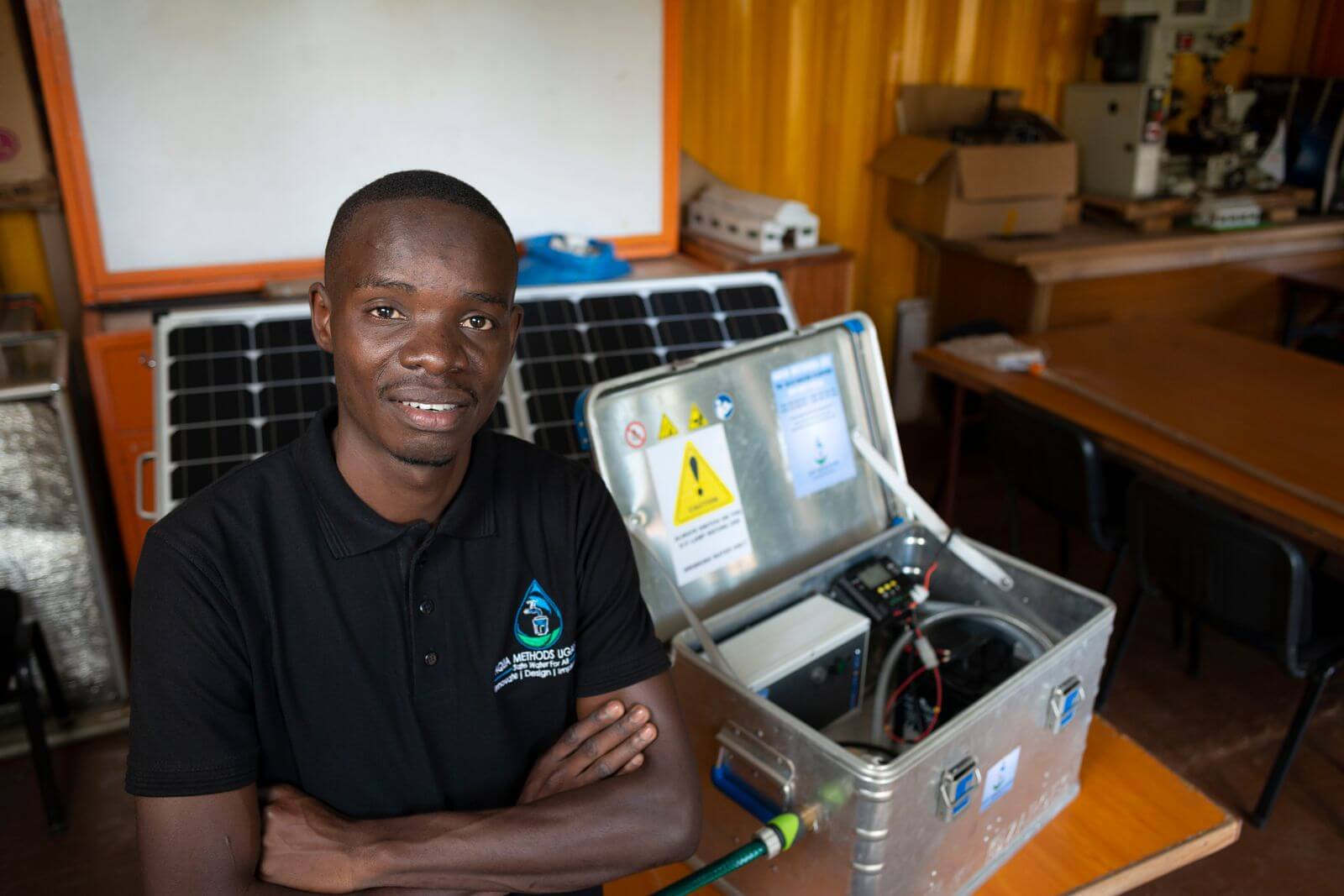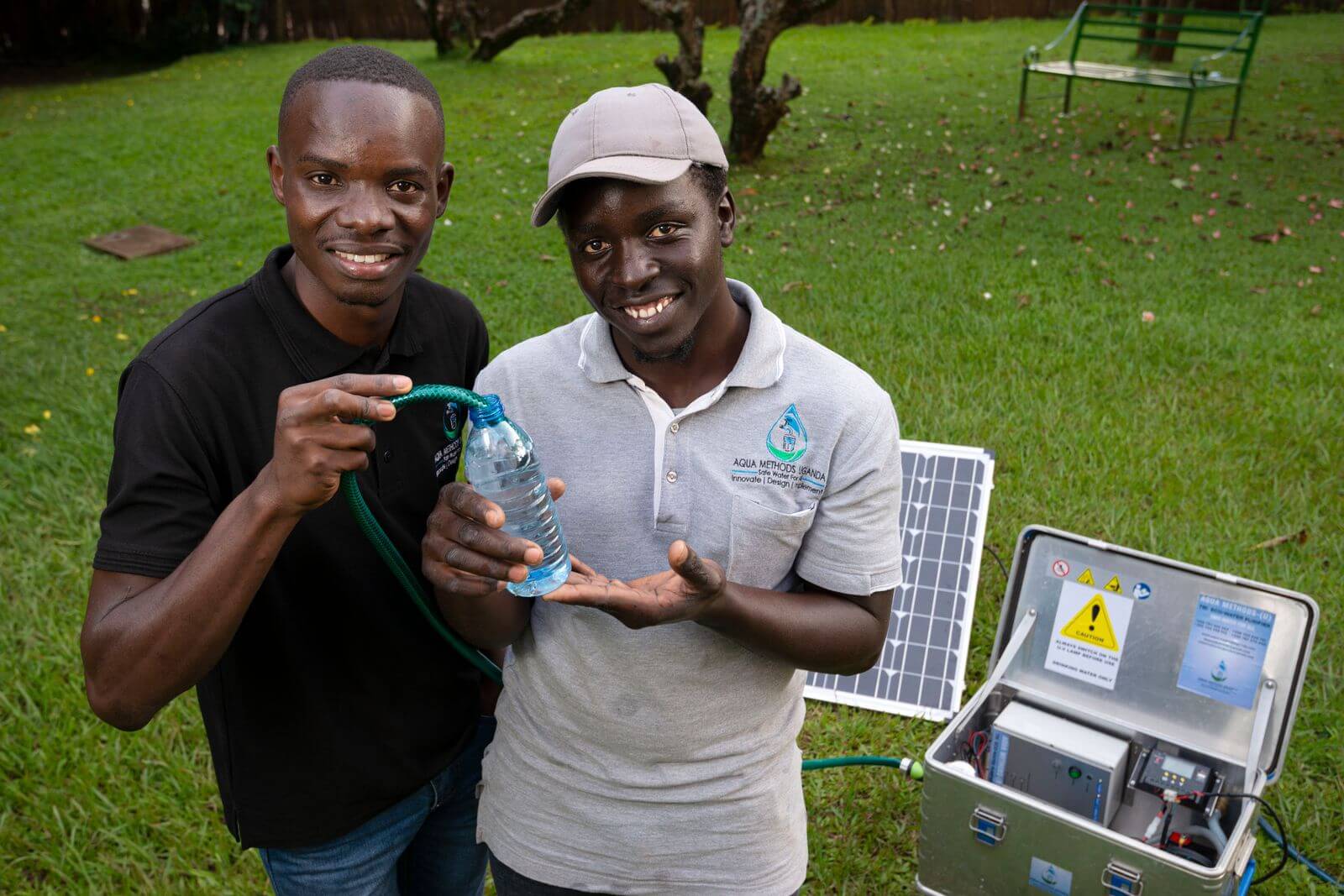Timothy Kayondo, an industrial chemist graduate from Makerere University, examined how quickly the chlorine in Kampala’s public water supply decays between the reservoirs and residents’ taps. Chlorine, added to purify water, disappears by the time water flows into a home. This finding spurred the serial innovator on to devise a system that would ensure public facilities like schools and clinics would have clean drinking water.
Cattle bones, cassava peels and other waste, which he buys from farmers across the country, are cleaned, fired in a vacuum-sealed furnace, soaked in an acidic solution, washed in distilled water, and then crushed into activated carbon.
Water is brought to the purifier from tanks or surface water by a solar pump, run through a sand filter, then the carbon filter, and finally through a UV light (also run by the solar panels). The whole system fits into a portable box about the size of a large suitcase, easy to carry and secured against theft. An internal battery stores energy from the solar panel. The system can purify 300 litres of water an hour.
Kayondo and his team are also planning to develop software to monitor the system in order to maintain it.



